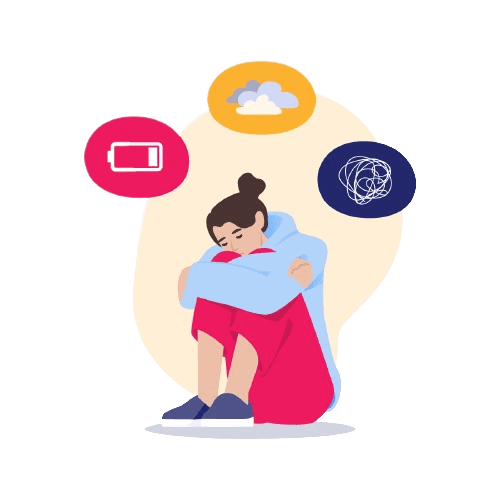Love Addiction Assessment
3 Min Free Love Addiction Assessment
What is Love Addiction?
Love addiction, also known as obsessive love or relationship addiction, is a pattern of unhealthy and compulsive behaviors related to romantic relationships. Individuals with love addiction often have an intense and compulsive need to be in a romantic relationship or to be in love. They may constantly seek out new relationships or become excessively attached to their romantic partners.
Love addiction is characterized by a strong dependence on romantic relationships for self-worth, validation, and emotional fulfillment. Individuals with love addiction often experience a fear of abandonment and may go to great lengths to avoid being alone. They may engage in repetitive relationship patterns, such as pursuing unavailable partners or staying in unhealthy relationships despite negative consequences.

Symptoms of Love Addiction
- Preoccupation with Romance
- Excessive Fantasizing
- Serial Monogamy
- Fear of Abandonment
- Reliance on External Validation
- Neglecting Personal Responsibilities
- Tolerance and Withdrawal
- Compromising Personal Values
- Repeated Relationship Patterns
- Loss of Identity
- Difficulty Setting Boundaries
- Emotional Turmoil

Who Can Benefit From This Love Addiction Assessment?
A love addiction assessment can benefit individuals experiencing relationship challenges, serial monogamists, those with a fear of abandonment, codependent individuals, those neglecting personal responsibilities, seekers of emotional roller coasters, individuals struggling with self-identity, those experiencing relationship withdrawal, and anyone seeking personal growth and improved relationships.
The assessment provides insights into problematic patterns and behaviors, guiding individuals toward understanding the underlying factors contributing to their challenges. It serves as a catalyst for seeking appropriate support, such as therapy or counseling, and developing healthier relationship dynamics. Acknowledging and addressing love addiction can lead to increased self-awareness, improved well-being, and healthier relationships.
Types of Love Addiction Assessment
Emotional Awareness Exercises
Practice emotional awareness exercises that help individuals identify and understand their emotional responses and triggers related to love addiction. This can involve journaling, mindfulness practices, or guided reflections.
Relationship History Analysis
Engage in a thorough analysis of past romantic relationships. Identify common themes, patterns, and behaviors that may indicate love addiction tendencies, such as rapidly entering new relationships or seeking intense emotional connections.
Attachment Style Assessment
Explore attachment styles, such as anxious or avoidant attachment, which can provide insights into how individuals approach and navigate romantic relationships. Understanding one’s attachment style can shed light on potential addiction tendencies.
Self-Reflection Questionnaire
Utilize self-reflection questionnaires that focus on behaviors, emotions, and thoughts related to love addiction. These questionnaires can prompt individuals to assess their attachment styles, relationship patterns, and levels of dependency or preoccupation with relationships.
Clinical Interviews
Engage in interviews with mental health professionals experienced in working with relationship and addiction issues. These professionals can ask targeted questions and guide individuals in exploring their relationship patterns, emotional dependency, and coping mechanisms.
Psychological Assessments
Utilize broader psychological assessments that may not be specific to love addiction but can provide insights into underlying issues, such as self-esteem, codependency, or attachment-related challenges that may contribute to love addiction tendencies.
Handling Love Addiction
Handling love addiction involves taking steps to address and overcome the unhealthy patterns and behaviors associated with it. Here are some strategies and approaches that can help individuals in managing and overcoming love addiction:
- Acknowledge the Problem: Recognize and accept that there is a pattern of unhealthy attachment and dependency on romantic relationships. Acknowledge the negative impact it may have on your well-being and relationships.
- Seek Professional Help: Reach out to a therapist or counselor experienced in working with relationship issues or addiction. They can provide guidance, support, and therapeutic interventions tailored to your specific needs.
- Build a Support System: Surround yourself with a supportive network of friends, family, or support groups who can offer understanding, encouragement, and accountability in your journey toward recovery.
- Self-Reflect and Understand Triggers: Engage in self-reflection to identify the underlying emotional, psychological, or relational triggers that contribute to love addiction. Explore past experiences, trauma, or unresolved issues that may be driving these patterns.
- Establish Boundaries: Set healthy boundaries in relationships to protect your well-being and foster a sense of autonomy and self-respect. Learn to communicate your needs, assert your limits, and prioritize your own self-care.
- Focus on Self-Development: Invest time and energy into personal growth, self-esteem building, and self-love. Develop your own interests, hobbies, and goals outside of romantic relationships. Cultivate a sense of fulfillment and happiness that is not solely dependent on being in a relationship.
- Practice Mindfulness and Self-Awareness: Develop mindfulness practices that help you stay present, observe your emotions and thoughts without judgment, and cultivate self-awareness of your patterns and triggers.
- Challenge Negative Thoughts and Beliefs: Challenge the negative beliefs and thought patterns that contribute to love addiction. Replace them with more realistic and positive perspectives about yourself and relationships.
- Healthy Coping Mechanisms: Identify and develop healthy coping mechanisms to manage stress, anxiety, or emotional distress that may arise when not engaged in a romantic relationship. Explore activities that bring you joy, relaxation, and fulfillment.
- Engage in Therapy or Support Groups: Participate in therapy or support groups specifically focused on love addiction or relationship issues. This can provide a safe space for sharing experiences, gaining insights, and learning from others going through similar challenges.
Remember, overcoming love addiction takes time, effort, and dedication. It’s important to be patient and compassionate with yourself throughout the process. With professional help, support, and a commitment to personal growth, you can break free from love addiction and build healthier, more fulfilling relationships.

